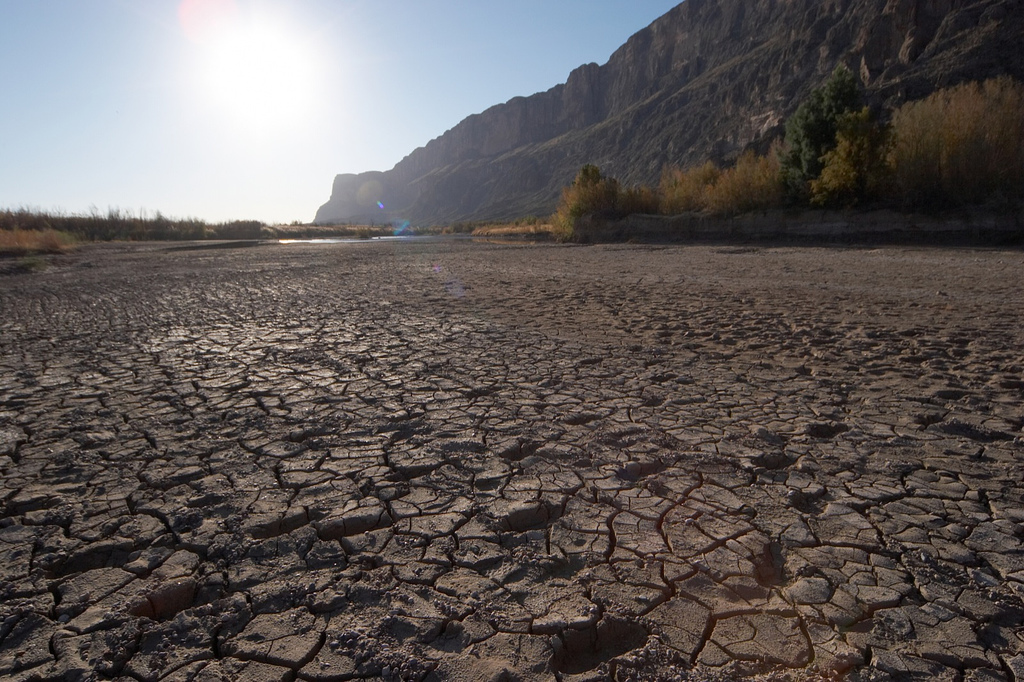
A new study has revealed that over four billion people – two-thirds of the world’s population – live with severe water scarcity for a total of at least one month over the course of each year. The crisis is far worse than previously thought, with 500 million people living in places where water consumption is double the amount annually replenished by rain.
People in India and China are most affected by insecure sources of water, but the report also highlighted regions in the US, Australia and even London. Indeed, the capital of the world’s sixth richest country is the 15th most ‘water-stressed’ city on the planet.[1] Prof Arjen Hoekstra, at the University of Twente in the Netherlands and who led the new global research, published in the journal Science Advances[2], said that with its dense population the Greater London area experiences water scarcity ‘regularly’, adding: ‘You don’t have the water in the surrounding area to sustain the water flows [to London in the-long term].’ The Colne and Lee catchment areas are the most seriously affected. According to a separate study by the Environment Network, ‘over-withdrawal’ and pollution have led to ‘inadequate functioning’ of three-quarters of the rivers and lakes in England and Wales.[3]
The crisis is of course much more acute in poor and underdeveloped countries. In January, the World Economic Forum cited water scarcity as one of the world’s three greatest crises alongside climate change and mass migration. Severe water scarcity is defined as water-use being more than twice the amount being replenished. Yemen, where most of the population struggles to find clean drinking water on a daily basis, could see water run out within a few years.[4] Pakistan, Iran, Mexico, and Saudi Arabia aren’t far behind as the depletion of aquifers continues apace.
Researchers concluded that without urgent solutions water shortages would increase alongside growing populations, warming climates and further urbanisation. But another major factor is the continued increase in meat-eating by classes with rising incomes. Farming easily consumes more water than any other activity.
‘Taking a shorter shower is not the answer,’ said Hoekstra, because just 1-4% of a person’s water footprint is in the home, while 25% is through meat consumption. It takes over 15,000 litres of water to make 1kg of beef, with almost all of that used to irrigate the crops fed to cattle.
The study also looked into environmental water requirements, ie the water needed to ensure that life (ie another food source, fish) survives in rivers and lakes, which are of course also used by people as waterways for transport. Just one month of severe water scarcity can have fatal impacts on the health of a river. ‘An empty river is not a river,’ said Hoekstra. He said caps on water-use should be put in place for all river basins.
David Tickner, chief freshwater adviser at WWF-UK, said: ‘This paper is another pointer to the urgency of this challenge. Billions of people, and many economies, are increasingly suffering because of water-related risks which could be better managed. The same risks are causing a collapse in aquatic wildlife around the globe.’
It is essential that new practices are developed which use and maintain water supplies more efficiently, by decreasing profligacy from urban water systems, increasing the use and safety of recycled water, and improving the efficiency and safety of agricultural irrigation. Fulfilling these solutions have become increasingly vital to the sustainability of life and civilisation. But the short-term interests of a profit-driven system are a barrier to solving these problems. As with climate change and mass migration, water scarcity is a crisis that capitalism could not prevent from developing in the first place, and is drastically ill-equipped to combat.
Barny Phillips
[1] Study by The Nature Conservancy published in the Global Environmental Change Journal http://www.sciencedirect.com/science/article/pii/S0959378014000880
[2] http://advances.sciencemag.org/content/2/2/e1500323
[3] http://waterfootprint.org/media/downloads/wfa_hfs_nla.pdf
[4] http://www.theguardian.com/global-development-professionals-network/2015/apr/02/water-scarcity-yemen-conflict




